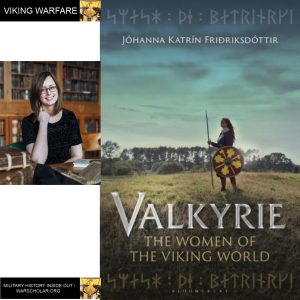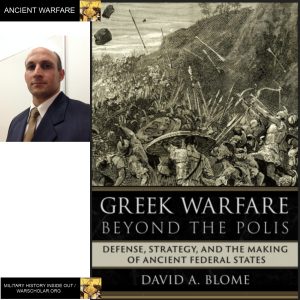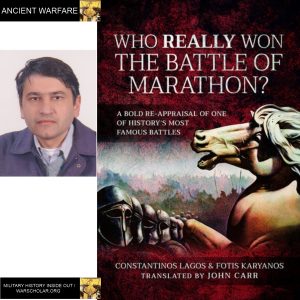Podcast: Play in new window | Download
Subscribe: RSS
 Check out this book here https://amzn.to/2YL6JUu
Check out this book here https://amzn.to/2YL6JUu
Johanna Katrin Fridriksdottir studies and teaches Viking era poetry and literature. She recently wrote a book on the idea of the Valkyrie in Viking culture. We spoke about this subject, Viking warfare, Viking sagas and the process of writing the book itself.
(Audio player at the end of the post.)
0:41 – Johanna talks about how she got into writing on Valkyrie.
1:45 – Johanna talks about how she broke the book down.
3:19 – Johanna talks about the date ranges, areas at issue, and the idea of the Valkyrie.
6:01 – Johanna talks about the Valkyrie.
7:45 – Johanna talks about the image of blood covered Valkyrie.
9:58 – Johanna talks about the meaning of Viking war poetry.
13:53 – Johanna talks about where the idea of the Valkyrie first started.
19:02 – Johanna talks about evidence or lack of women fighting.
26:04 – Johanna further addresses the idea of female warriors.
29:07 – Johanna talks about blacksmithing.
31:28 – Johanna talks about the ideas of Valkyries in different places and time periods.
37:37 – Johanna discusses interesting facts about Viking sails.
41:27 – Johanna talks about her written sources and the archaeological evidence.
44:09 – Johanna talks about which stories were passed down over the centuries.
48:38 – Johanna talks about how much the written material supports the archaeological evidence.
50:35 – Johanna talks about the process of writing the book.
51:28 – Johanna talks about the goddess Freya.
57:37 – Johanna talks about crows and battlefields.
58:57 – Johanna mentions crows, eagles, and wolves as images of battle.
1:00:00 – Johanna talks about evidence of women riding horses.
1:03:00 – We discuss the resources a Viking chief needed for success.
1:04:33 – Johanna talks about a touching moment in the sagas.
1:10:38 – Johanna talks about the Viking languages she knows and Viking poets.
1:14:22 – Johanna can be found at vikingwomen.org and on twitter @sagaknitter
Links of interest
https://www.bloomsbury.com/uk/valkyrie-9781788314770/
https://twitter.com/sagaknitter
For more “Military History Inside Out” please follow me at www.warscholar.org, on Facebook at warscholar, on twitter at Warscholar, on youtube at warscholar1945 and on Instagram @crisalvarezswarscholar. Or subscribe to the podcast on Apple Podcasts | Stitcher | Spotify
Guests: Johanna Katrin Fridriksdottir
Host: Cris Alvarez
Tags: military, history, military history, conflict, war, interview, non-fiction book, valkyrie, , vikings, Iceland, Scandinavia, England, Battle of Stamford Bridge, York, Norway, Denmark, Sweden, Greenland, Odin, Valhalla, Ragnarok, Raven, Game of Thrones, Saga, Gotland, Freya, Skaldic, dragon, rune stones, wolf, giantess, Eddic, Christianity, ships, sails, Snorri, Vinland, Newfoundland, Freya, Thor, Oseberg, grave, tomb, crows, undead, zombie, reenactments, Beforeigners, Sammi, maritime
Check out this book here https://amzn.to/2YL6JUu
As an Amazon Associate I earn from qualifying purchases.


